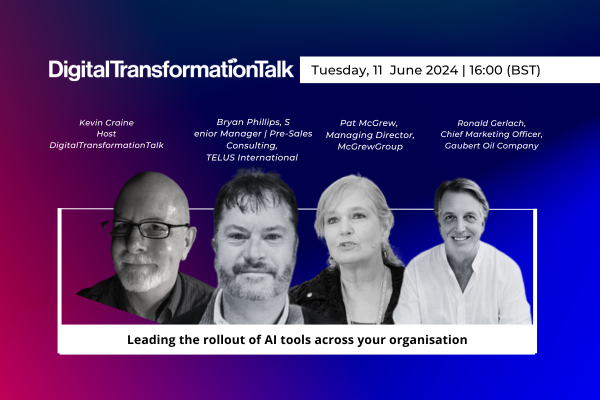The Expert View: Building Value in Retail with Advanced Digital Technology
Sponsored by BJSSAI has the potential to transform retail but there are obstacles to overcome, as delegates said at a recent Business Reporter breakfast briefing.

“Recent developments in artificial intelligence (AI) bring opportunity for retailers to delight customers and grow their business,” said Simon de Timary, Head of Data and AI at BJSS, opening a Business Reporter Breakfast Briefing at the Goring Hotel in London. He added that data’s importance in AI means it is now number one on the CEO’s agenda, where it was perhaps third on the list a few years ago.
The attendees, all senior executives from a range of retail businesses, agreed that data was a key challenge to successfully deployment of AI. That challenge must be addressed to take advantage of a technology so significant that one attendee likened it to the arrival of desktop computers in the office.
AI uses and aspirations
Very few attendees were at an advanced stage with their AI use. One said their company uses it to summarise customer reviews on their online product pages, so visitors don’t have to read them individually. Another said they use it for sentiment analysis in customer service to determine whether a reply is urgent.
However, all attendees said they aspire to do more with AI. Some were interested in the potential for personalisation, whether by configuring a product page to emphasise different key words to resonate with each visitor or generating emails telling a customer a product they’ve bought before is available in their size and offered at a discount.
There was some interest in dynamic pricing, though those at the briefing warned this is problematic if prices are being increased, because customers feel cheated. But dynamic prices can go down as well as up and AI can help, for example, by identifying perishable items that are not selling fast enough and reducing the price, so the store doesn’t end up throwing them away.
Delegates also see unrealised potential in optimising stock allocation. For example, a store that constantly sells out of one item should be allocated more automatically but this often doesn’t happen because the necessary data cannot be gathered and analysed in time.
Data difficulties
Throughout the briefing, data was consistently raised as an obstacle. For some retailers, data is on legacy systems and cannot be connected to more modern tools - or at least, not without a modernisation project. Others don’t have sufficient oversight of the data they have, where it is, and what permissions are involved in using it.
Getting the most out of AI typically means putting data in the cloud too, and not enough organisations have done that with all the necessary data. Kerry Lee, Client Principal, Retail, at BJSS, said that only about 43 percent of corporate data is in the cloud, leaving a huge amount still to be migrated.
Another significant challenge is getting senior buy-in and budget to embark on AI projects. Often, a project won’t get the go-ahead without a clear use case but, as one delegate described, a lot of work could be done so the organisation is prepared to take advantage of unforeseen use cases as they arise.
Those at the briefing also said that reputational and regulatory risks are a concern that can hold back AI projects. The technology is so new that many of the guardrails and safety measures are still being defined. Businesses are wary of pushing too far ahead when the landscape is unclear.
An excuse to modernise
For one attendee, the potential for AI is not big enough. They said they had yet to see a true killer application of AI in the business. For Mr De Timary, though, this was not a problem. He said that AI doesn’t have to be deployed in radical ways to save time or money for the business or to deliver a better service for customers. In fact, he suggested that starting with one small, distinct project can be a good way to develop an AI program and unlock the support for further projects.
Mr De Timary recommended that companies begin by determining the value a proposed AI project will deliver. That could be cost reduction, revenue generation or improved sustainability. Then businesses should assess the project’s feasibility, such as whether they have the necessary data and the processes in place to work with it. Finally, they should look at the ethics of the use case. Are they using AI in a way that matches company values or do they risk alienating customers, such as by dynamically raising prices?
Ultimately, he said that AI implementation is a people problem, more than it is a tech problem. He recommended that businesses “use AI as an excuse to modernise and to digitise” their services.
To learn more, please visit: www.bjss.com

Business Reporter Team
Most Viewed
23-29 Hendon Lane, London, N3 1RT
23-29 Hendon Lane, London, N3 1RT
020 8349 4363
© 2024, Lyonsdown Limited. Business Reporter® is a registered trademark of Lyonsdown Ltd. VAT registration number: 830519543





